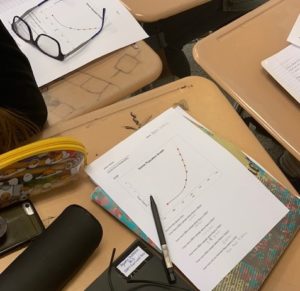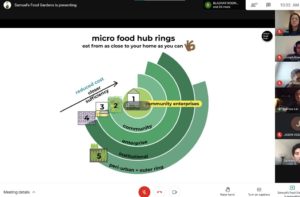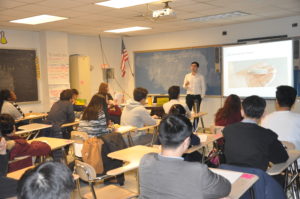
A core focus of Working in Support of Education (W!se), a non-profit organization, is to help high schools prepare students for college and the workplace. Given environmental, economic and social challenges facing many countries, readiness for the future means having a foundational knowledge of sustainability.
During these difficult times, we search for clues about what the future may bring. Will it be all that we hoped… with opportunity, beauty, and peace? Will we have all the things that we enjoy now: clean air, adequate food and abundant water? As citizens of developed nations, we have had the privilege of not worrying about famine and severe life-threatening drought for nearly a hundred years.
Unfortunately, many children in the U.S. and around the world, feel that this privilege is slipping rapidly away. According to a Washington Post/ Kaiser Family Foundation survey, teens say the issue of climate change makes them feel “afraid” (57%) and “angry” (52%). A little more than forty percent (43%) say they feel “helpless,” while 54% feel “motivated”.
Change is needed, yet, if were to a make a truly lasting transformation, we must recognize that our responsibility goes beyond the daunting work of averting global warming, securing depleted resources and removing pollutants from our waterways. We have to make an investment in an education that fosters responsible stewardship. W!se’s Engineered Green Economics (EGE “edge”) initiative was developed to meet the growing demand for workers to understand sustainable practices and to nurture the next generation of talent with the capacity to influence change. A key differentiator between EGE and other high school curricula on climate change or the environment is the presentation of these concepts in the context of the three pillars of sustainability: environment, social factors and business/economy. EGE prepares students to recognize that sustainability is a fundamental part of the work-world, no matter their chosen field. For this reason, the EGE curricula were developed in collaboration with an advisory committee, convened by W!se, consisting of professors in engineering and physics as well as business executives from energy companies, financial services and insurance among others.


Also crucial to our efforts is making the EGE material accessible to any high school student rather than a particular group, e.g. advanced placement or career and technical education. It is important that exposure to these concepts is inclusive so that everyone has a voice in their community and to mitigate future disparity of access to jobs in this emerging sustainability job market.
We know that many people are concerned about the economy post-Covid as well as climate change, equality and education. It is important that we make a concerted effort to work together to make sustainability education available in schools to benefit not only our communities but to also achieve sustainable development worldwide. W!se is grateful to our volunteers and partners who join us in helping young people reach their full potential and become active citizens of this interconnected world. We are excited to continue our work with teachers to build these new learning opportunities that help students explore the circular economy and build new innovations and practices. Young people need to know that while the current issues may seem overwhelming, they will enter the work world just when the demand for talent in sustainability job fields is rising and they will be ready.